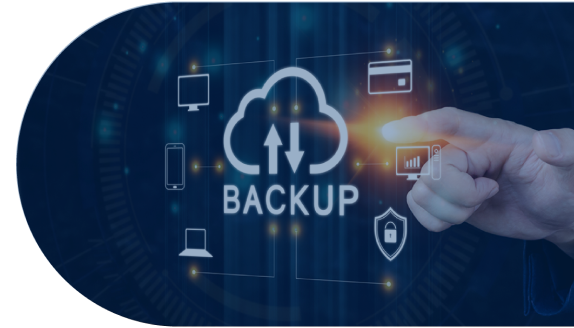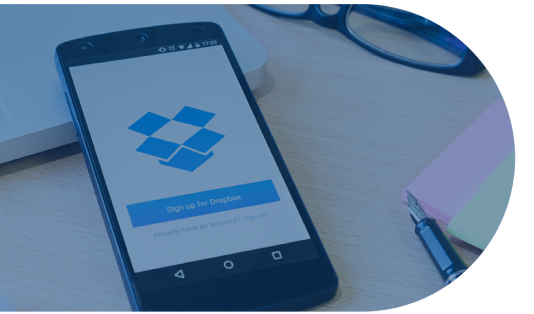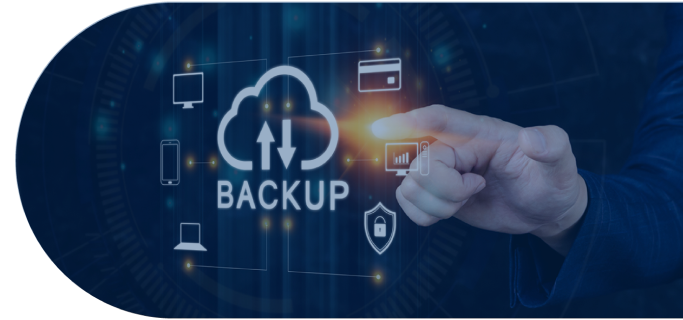The 3-2-1 backup strategy attempts to seal potential data loss loopholes by spreading out your backup copies across different storage locations. That means you can recover your system from multiple backup locations.
In essence, you should have at least 3 copies of your data: 2 backed up locally in different devices; and 1 stored in an offsite backup location, such as the cloud.


Google Drive, Dropbox, OneDrive, and other services like these are considered cloud storage, not cloud backup. Cloud backup, in contrast, is like building an exact copy of your home so that if your current one burns down, you’ll have another one ready for you. Obviously, the replica home will cost more, but at least you’ll have more than a copy of data-secured stuff should the worst happen.
This varies from user to user, but once a week at minimum is generally considered good practice. Bandwidth-pending, daily is acceptable. If you’re frequently creating and modifying files, you’ll want to run backups more often.
StorX is an absolute privacy protected storage system. The unique architecture ensures that your data is never lying unencrypted as a single file in any storage location. To access your complete data, The hacker will first have to get the decryption password and then have location details and access to all the different servers which store data, This is a near impossible task.
Local backups are usually saved to either a partition on the original computer’s hard drive or to an external hard drive. Cloud backups are saved to secure, remote storage nodes, often with multiple copies in several geographically diverse locations (this is known as “geo-redundancy”). The latter is considered a safer bet because local drives are equally susceptible to hardware/software failure, theft, and loss as the computers they back up.

Local drives need to be physically connected to the computer and the backup is usually run manually. Most cloud backup services are automated and run in the background daily, hourly, or continuously. The initial backup will take longer than a local backup, sometimes up to a week depending on internet speed and amount of data.

Sadly not! RAID and backup are designed to solve different problems. However they are complimentary and work well together. Consider the following:
RAID is designed to protect against the failure of a hard drive and to increase overall performance. For example, you may have two hard drives in a mirror. Both drives have identical copies of your files, so when one fails the other can provide access to you files until the failed drive is replaced.
However if you accidentally corrupt or delete a file, that change will be made to both hard drives in the mirror. You need a recent backup to recover the file in this situation.
Local backups are usually saved to either a partition on the original computer’s hard drive or to an external hard drive. Cloud backups are saved to secure, remote storage nodes, often with multiple copies in several geographically diverse locations (this is known as “geo-redundancy”). The latter is considered a safer bet because local drives are equally susceptible to hardware/software failure, theft, and loss as the computers they back up.

Local drives need to be physically connected to the computer and the backup is usually run manually. Most cloud backup services are automated and run in the background daily, hourly, or continuously. The initial backup will take longer than a local backup, sometimes up to a week depending on internet speed and amount of data.
Absolutely, so long as you know your login credentials and encryption key, you can access your files from any web browser in the world!
More users and organizations are looking to storing backup across multi location and multiple cloud for agility and resilience. Decentralise cloud offers the perfect option which offers both multi location and multi cloud. Decentralise cloud offers the best of both multi location cloud with built in audits.
StorX Network provider a with a decentralize cloud storage for safely storing your data online.
We offer 30-day money back for business and premium annual plans. Just email us and we will process the refund.
No, We do not ask for a credit card during signup. You can use up to 2 GB of Free Space for Storage. If your usage exceed the provided storage/ bandwidth limits, You would be asked to upgrade, you'll have an option to enter credit card information or to downgrade to the Free plan.
Free accounts comes with limited amount of space + bandwidth and No support is provided.
Yes, you can upgrade your free package to a paid plan and all of your data and configuration will remain intact.
Yes. You can cancel your account at any time. If you cancel, we will stop billing you immediately. There's no long-term contract or commitment
First, we do not automatically stop the account if reach your storage limits, You would be asked to either upgrade your account or stop uploading contents.
Yes, we offer steep discounts for nonprofits, religious organizations, charitable organizations, public schools, and students. Please email us at [email protected] for eligibility and discount info.
StorX Tokens are our primary payment method, However for ease of use we also accept Visa, Mastercard, Discover, and American Express.
We run latest stable releases of our server operating system and database software. All software we use is continuously monitored for security problems and is regularly updated with the latest security patches. All the communications between you, cloud services, and our servers are encrypted with SSL.
StorX Network deploys industry leading standards of OAuth password-less authorization protocol when connecting to SaaS Softwares like Google Docs, Box, Dropbox or any such platforms. This means we have no access to your passwords for these services.
You can click and review our Terms of Service and Our privacy & Security Policy.
If you have any questions, Or want to provide any feedback by sending an email just ping us email us at [email protected]. Our enterprise plan are comes bundled with chat support that guarantee fast (usually within a few hours) and professional response from a member of support team.